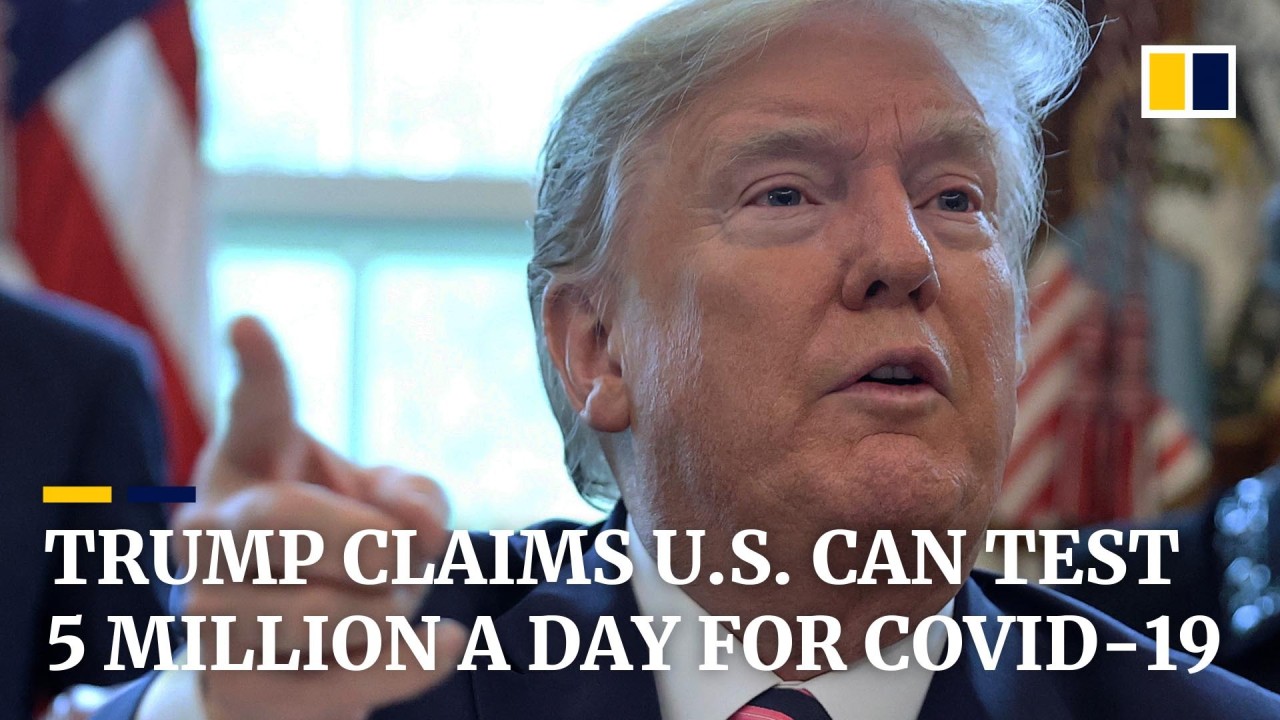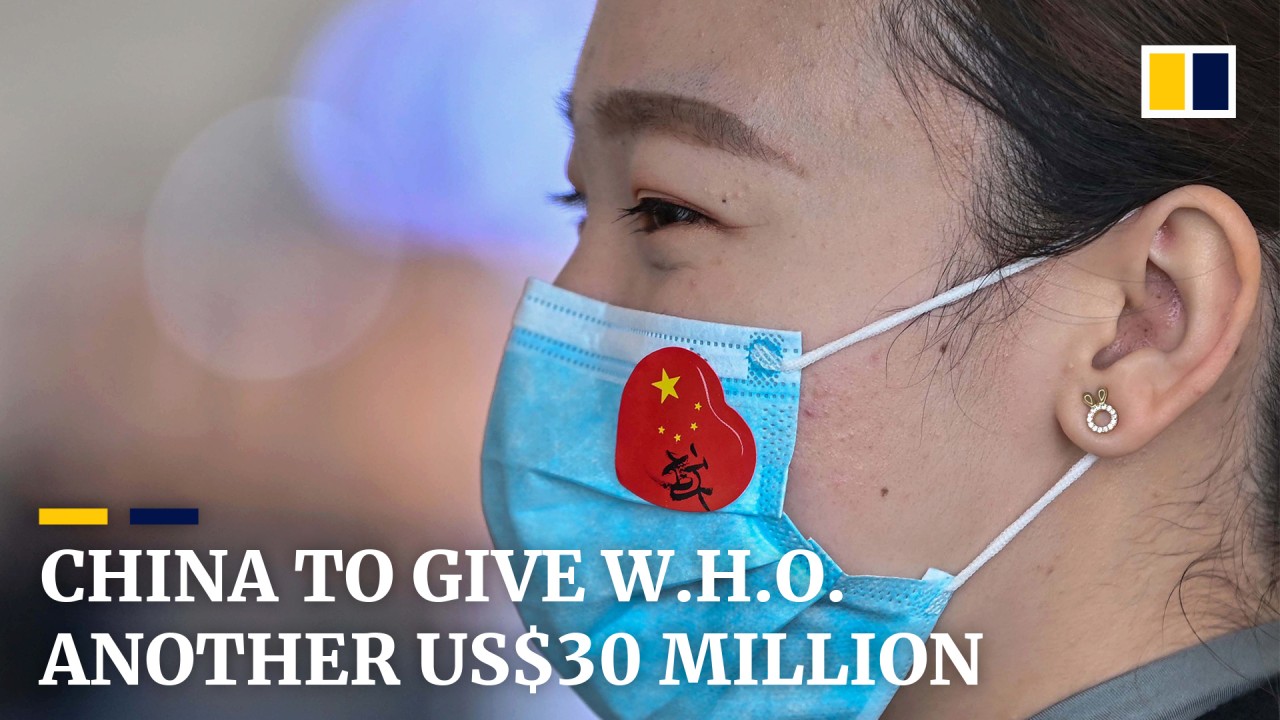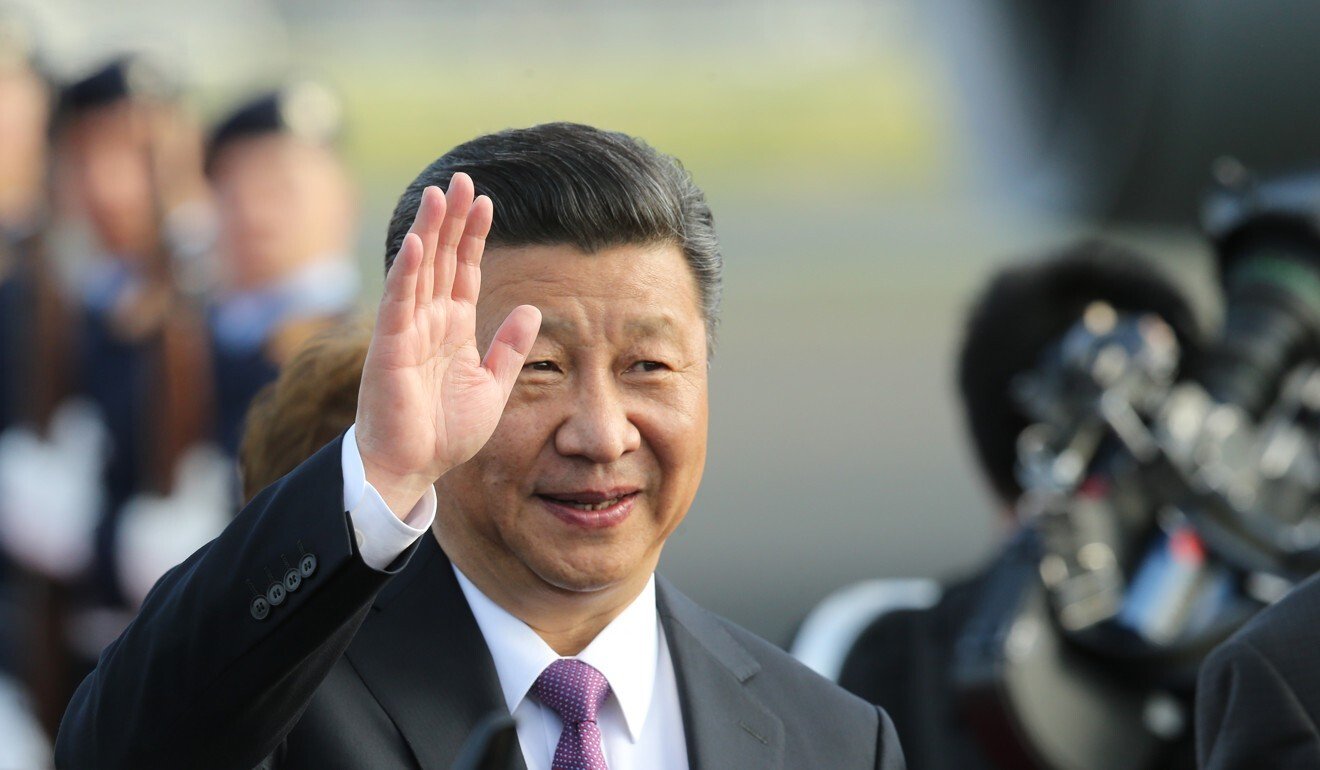
Who is winning the China-US race to run the world amid the Covid-19 pandemic?
- Crisis has brought potential to redraw the map of global power and influence, but there is ‘deep-seated mistrust’ of Beijing
- While the US has ‘spectacularly failed to lead’, China is under mounting pressure and the WHO has become a political football

This is the fifth in a series exploring the global backlash that China may face as a result of its actions and rhetoric during the coronavirus pandemic. This story examines how global organisations have been affected by the crisis.
In 2018, President Xi Jinping said China would “take an active part in leading the reform of the global governance system”, as part of an effort to build “a community with a shared future for humanity”.
That message was vague enough to attract little attention, until the Covid-19 pandemic arrived, bringing upheaval and uncertainty, along with the potential to redraw the map of global power and influence. The question then became: what would China’s role in global governance reform look like?
The World Health Organisation (WHO) has been at the forefront of that debate – and become the political football – given its frontline role in coordinating the fight against the disease. Critics – US President Donald Trump prominent among them – were not impressed by the WHO, saying it praised Beijing’s response to the outbreak while glossing over its delayed action when the coronavirus first appeared in the Chinese city of Wuhan.
The conflict between Washington and Beijing over the WHO’s conduct has been thrown into sharp relief because the pandemic has killed more than 217,000 people and infected over 3 million, with an especially large toll in the United States. Yet, it is just emblematic of the much broader struggle for hearts and minds playing out between the two powers, which is now raising another question: who is winning?

“The US has spectacularly failed to lead during this crisis, but China has not been able to fill the gap as effectively as Beijing may have hoped,” said Richard Gowan, the United Nations director at the Brussels-based think tank International Crisis Group.
“Washington would likely ramp up efforts to limit Chinese influence in international organisations after the pandemic, but US allies in Europe and elsewhere would likely still prefer avoiding confrontation with Beijing although many resent Chinese new assertiveness at the UN,” Gowan said.
He was referring to how China has sought to expand its influence at the international organisation in recent years, becoming the largest contributor to its budget and peacekeeping operations after the US. That push includes getting Chinese nationals at the helm of four of the UN’s 15 specialised agencies, compared to one from the US.
This has happened as Washington choked off funding and disengaged from the UN. It has also walked away from global multilateral agreements, such as the Iran nuclear deal and Paris climate pact, and blocked appointments to the World Trade Organisation to reflect its displeasure with how it does business.
While this behaviour by the Trump administration would seem to create the sort of vacuum Beijing could step into, it has not quite worked out that way for the Communist Party of China.
China’s appointment to the UN’s Human Rights Council in April sparked complaints from global groups over the country’s human rights record. The UN also backtracked on allowing Chinese telecoms giant Tencent to provide videoconferencing tools for the organisation’s 75th anniversary after critics said the company helped censor China’s internet for Beijing.
China is likely to seek to take up more responsibility in international bodies in the post-pandemic era, but to win trust it will need to carefully handle its relations with European countries, said Pang Zhongying, visiting senior fellow with the ISEAS-Yusof Ishak Institute in Singapore.
“China should not try to play assertive diplomacy with European countries during this pandemic,” he said. “If we say we continue to support the WHO and we are pursuing a global solution, then we should know what actions will unite countries. Acting aggressively hampers our efforts. This also applies to other organisations, we should not appear to have a selfish political agenda going into them.”
Is China prepared?
Meantime, the blame game over Covid-19 is heating up, with some voices in Washington saying China is responsible for the outbreak and should be held responsible.
The WHO has been attacked for praising China’s pandemic response as “transparent”, despite Beijing’s suppression of whistle-blowers and information at the start of the outbreak and for being slow to warn of human-to-human transmission of the virus. That criticism has also rubbed off on WHO director general Tedros Adhanom Ghebreyesus, who was backed by China in the body’s 2017 election.
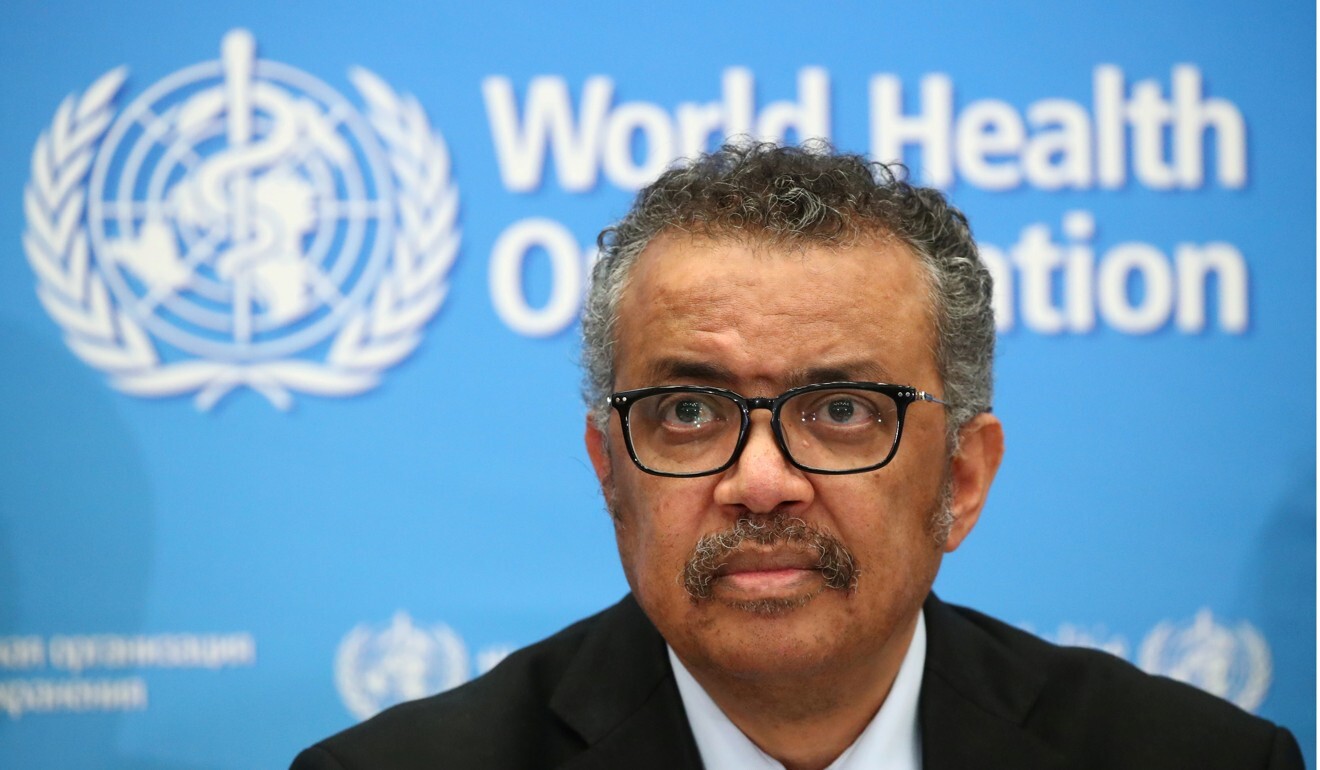
“The Covid-19 crisis that has unfolded over the course of the past several months ultimately raises the question of whether China is prepared for the global leadership it has sought,” said Kristine Lee, associate fellow at the Washington-based bipartisan think tank Centre for a New American Security.
“We have seen the fundamental perils that Beijing’s utter lack of transparency and preoccupation with control above all else has generated for agencies like the WHO, which has a far broader mandate of advancing global public health.”
Illustrating the extent of Trump’s anger with the WHO, he said in mid-April the US would suspend funding to the agency to review its pandemic response, with Trump accusing the body of being “funded largely by the United States yet very China-centric”.
The US is the largest single contributor to the WHO, providing more than US$400 million – 15 per cent of its budget – in 2019.
For all the criticism of the WHO, it also has its defenders, including Bill Gates who tweeted that the world needed the health agency more than ever and said a cut in funding was “dangerous”. Gates has invested billions of dollars on health programmes through his foundation, including to develop vaccines for infectious diseases.
WHO chief Tedros also pleaded for an end to the politics in the face of the pandemic, saying in an April 8 statement “the United States and China should come together and fight this dangerous enemy”.
Political commentators have said Trump’s attacks on the WHO were a bid to deflect criticism of his administration’s handling of the epidemic and the soaring death toll in the US, which has exceeded that of any other country, including China. As Trump faces re-election this year, blaming China has become part of his campaign platform, they say.
Beijing responded to Trump’s decision to pause WHO funding by announcing last Thursday it would donate an additional US$30 million to the UN body, after providing US$20 million in March. China’s contribution to the WHO reached US$86 million last year, up 52 per cent from 2014.
Last month, the US pressed the 15-nation UN Security Council to adopt a resolution that would largely blame China for unleashing Covid-19 on the world, an effort vetoed by China. A video conference between G20 leaders last week was also called off at the last minute owing to a bitter quarrel between China and the US over the role of the WHO.
Beijing has rejected criticism of its handling of the outbreak, pointing to how its centralised system of government helped control the disease in China and that it then sent medical help to other countries.
China offered medical aid and support to more than 120 countries and international organisations, and dispatched medical expert teams overseas. Chinese officials have said the country’s epidemic countermeasures “bought valuable time and provided experience for all”.
The US rejects that narrative, and together with Canada and Australia, Washington has said a post-pandemic review of the WHO’s response to the outbreak was needed.
Australia said it would push for an investigation at the annual meeting next month of the World Health Assembly, the decision-making body of the WHO, after raising doubts about China’s claims about the origin of the virus and its reporting of cases.
“There is a lot of deep-seated mistrust of the Chinese Communist Party that is percolating within both the political ranks and body politics of countries hard-hit by the virus, across Europe, Asia and North America,” said Lee at the Centre for a New American Security.
China has rejected calls for an independent international investigation. Chen Wen, a top Chinese diplomat in Britain, said in an interview with the BBC last Friday that demands for such an inquiry were “politically motivated”; China’s ambassador to Australia has threatened economic retaliation.
‘A lot of pushback’
But China-US rivalry was intensifying well before the pandemic’s arrival, illustrated by a two-year trade war.
Harsh Pant, head of the strategic studies programme at the Observer Research Foundation in New Delhi, said the pandemic had compromised the credibility of the WHO, but this had only been part of the unravelling of the global governance structures created from the end of World War II.
“The question here is about leadership .... The comfort that many people had a few years back, that China may be able to lead the world, that comfort might be going away very rapidly, especially after this [pandemic] crisis,” he said.
“China will continue to be part of these organisations, since there is in some ways no alternative but to make China part of these organisations if you are serious about fighting global challenges, but there will be a lot of pushback from now on.”
There was also a possibility it would increase pressure on global governing bodies to make space for Taiwan, which had been left out of groups such as the WHO due to Beijing’s objections, he said.
Taiwan was excluded from the WHO’s coordinated pandemic response as China blocks the self-ruled island’s membership in the United Nations and at the World Health Assembly. But on Tuesday, the US pledged support for Taiwan’s participation in the WHO after ministers from both sides held a 30-minute teleconference.
China will face a backlash from the controversies related to the WHO, said Pang Zhongying at ISEAS in Singapore.
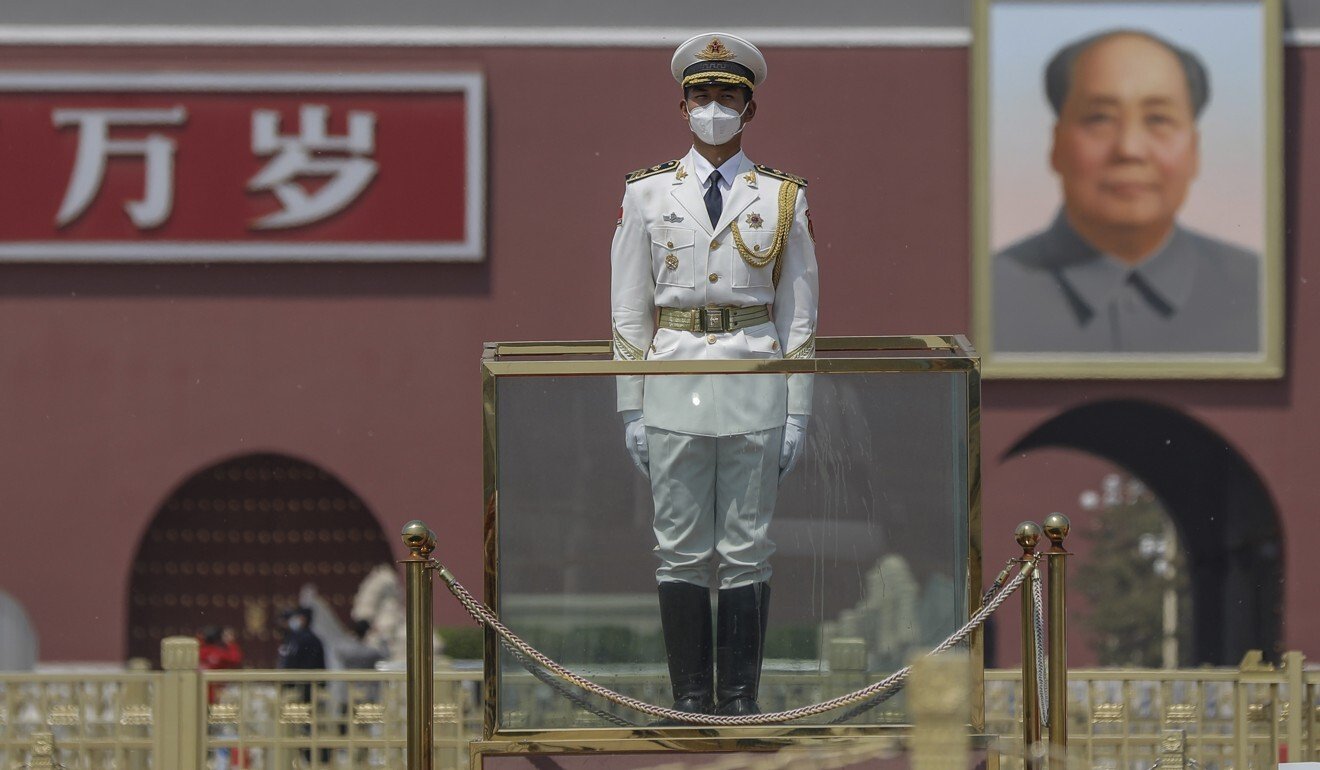
“Having Tedros as a WHO leader, a so-called pro-China person, is a burden and a negative asset to China, and we are paying a high price for this,” Pang said.
“China is surely in a challenging position next time when international organisations elect leaders — other countries will be more cautious.”
That is already happening. Singapore’s Daren Tang Heng Shim in March was elected director general of the UN’s World Intellectual Property Organisation after being backed by the US, beating out the Chinese candidate despite Beijing’s lobbying.
More of the same can be expected, according to Pant at the Observer Research Foundation: “China will find it increasingly difficult to have its way, like it’s been having for the last few years at least.”
Other parts of this series examined China hanging onto foreign manufacturers, China-US relations amid the virus blame game, the outlook for China’s economy as it recovers from the outbreak, and the outlook from a military viewpoint. Next, the Post looks at US lawsuits filed against China.
